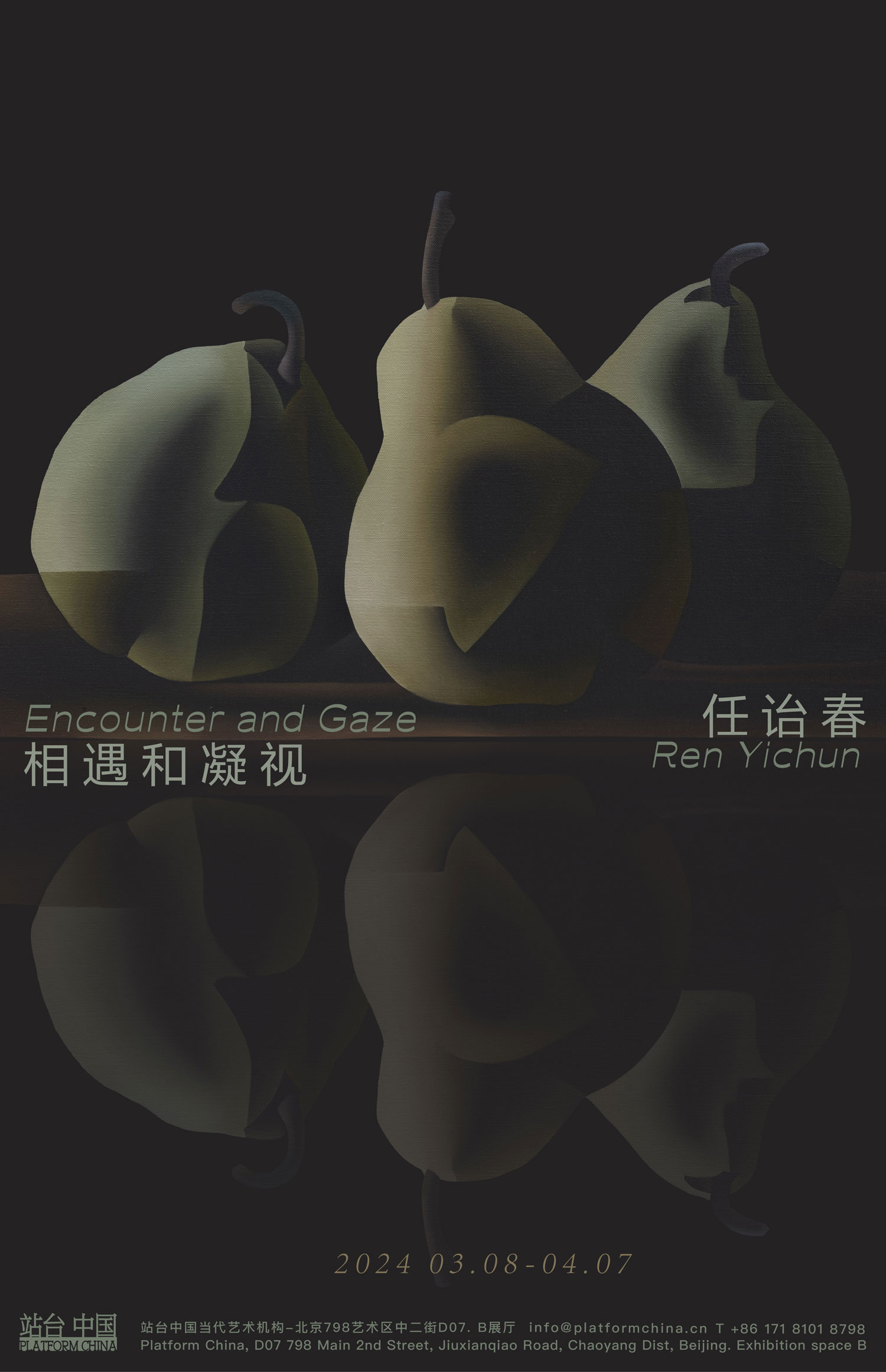展期 Period:
2024.3.8—2024.4.7
艺术家 Artist:
地点 Venue:
站台中国当代艺术机构 Platform China Contemporary Art Institute
新闻稿 Press Release:
《相遇和凝视》将是任诒春3月8日在站台中国当代艺术机构首次个展。站台中国隆重宣布全权代理艺术家任诒春。
任诒春出生于1994年。2017年毕业于西安美术学院油画系,获学士学位;2020年毕业于中国美术学院油画系,获硕士学位。现工作生活于北京。她的绘画围绕着花卉、静物和空间展开,但并非将其作为画面的主体。艺术家用自己的眼睛重新构建了物的内部、物与物、物与外部之间的关系,让关系成为了画面中真正的主体。一个苹果、一片叶子和一个遮风避雨的空间之间似乎从未如此平等,即使它们本就在相遇中同时存在,相互关联。
“相遇和凝视”作为一种观察和感知世界的方式,关乎着观看者与对象之间的相互给予。它们既塑造了绘画内部,也同样关联着画面之外艺术家自身的情感与认知。相遇意味着艺术家与所描绘的对象生发出一种特殊的关系,它并不指向一个孤悬的观察者,而是生长为一种内在的共生和连结。在这个过程中,主体的感官逐渐被唤醒。而“凝视”则是这一过程的延续和深化,它不仅仅是一个简单的目视行为,更是个体主体性的体现和外化。在清冷的光线与充满雾霭的视觉中,是艺术家秘而不宣的情感和思想,指涉着个体与自身、他人和世界之间的复杂互动。当长久的凝视着世界时,其自身的存在也被投射到时空之中,与时空产生一种紧密的联系和交换。“人”的消失却波澜不惊的塑造着身份和位置,这也不偿是一种权力结构和欲望的投射。
这种目光的重构或许可以在画面之外,不断延伸至更广阔的视野中,它关乎我们如何理解自身,理解与外界的关系,以至于在自我审视中迎接一次观看的回归。正如任诒春所说的:“所有的相遇最重要的是在凝视的过程中,抛开固有的思维阻碍,敞开来去真实的面对和感受彼此,在互通和交流中开启那些新的东西。”
"Encounter and Gaze" will be Ren Yichun's first solo exhibition at Platform China Contemporary Art Institute, opening on March 8th. Platform China proudly announces its exclusive representation of the artist Ren Yichun.
Born in 1994, Ren Yichun graduated from the Oil Painting Department of Xi'an Academy of Fine Arts in 2017 with a bachelor's degree, and obtained a master's degree from the Oil Painting Department of China Academy of Art in 2020. Currently based in Beijing, her painting revolves around flowers, still life, and space, but these are not depicted as the main subjects of her canvases. Ren reconstructs the internal dynamics of objects, the relationships between objects, and their connections to the external world through her own eyes, making relationships the true subjects of her paintings. A single apple, a leaf, and a sheltered space appear equally significant, even though they coexist and relate to each other in the act of encounter.
"Encounter and Gaze," as a way of observing and perceiving the world, involves mutual exchange between the viewer and the object. It shapes not only the internal dynamics of painting but also connects to the artist's emotions and cognition beyond the canvas. Encounter signifies a special relationship that emerges between the artist and the depicted objects, not directed towards a detached observer but evolving into an internal symbiosis and connection. In this process, the sensory faculties of the subject gradually awaken. "Gaze" is a continuation and deepening of this process, representing not just a simple act of vision but the embodiment and externalization of individual subjectivity. In the cool light and misty visual atmosphere, the artist's undisclosed emotions and thoughts imply complex interactions between the individual and themselves, others, and the world. Through prolonged contemplation of the world, their own existence is projected into time and space, establishing a close connection and exchange with them. The disappearance of the "self" quietly shapes identity and position, rather than serving as a projection of power structures and desires.
This reconstruction of vision may extend beyond the canvas to a broader perspective, concerning how we understand ourselves, our relationship with the outside world, and welcoming a return to observation through self-reflection. As Ren Yichun puts it, "The most important aspect of all encounters lies in the process of gazing, casting aside inherent mental barriers, opening up to truly face and feel each other, and discovering new things through mutual communication and exchange."

